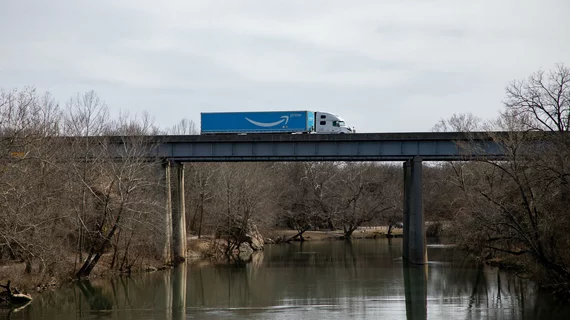5 mixed takes on the opening of Amazon Pharmacy
When Amazon opened the doors of its drugstore business Nov. 17, the potential competitive ramifications rattled that industry on many levels. Would establishment drug sellers stand a chance against the mighty retail innovator?
The uncertainty immediately sent the stocks of CVS Health, Walgreens and Rite Aid falling.
Since then the reactions from insiders and watchers seem to have become more tempered—or maybe not. Here’s a roundup of some representative comments in chronological order.
1. “The news represents a disruption to the system and competitive threat that will likely shift scripts away from the retail channel.”—Citi Research analysts (AP News, Nov. 17)
2. “It’s hard to predict how healthcare markets will evolve in response to Amazon’s entrance, but increased competition will no doubt produce benefits for consumers. And while Amazon’s critics often complain about its size, its main competitors in healthcare aren’t exactly pipsqueaks.”—Editorial board of the Wall Street Journal (WSJ, Nov. 18)
3. “Put simply, the laws of economics still apply—even to Amazon. Drug distributors are strong financially and have great scale and a tremendous purchasing-power advantage. Distributors’ stocks may take a dive, but their business will be fine in the long run. The only competitive advantage Amazon has against drug distributors is that Wall Street completely ignores its profitability and focuses only on revenue growth.”—Vitaliy Katsenelson, chief investment officer at Investment Management Associates in Denver (MarketWatch, Nov. 19)
4. “I think there's some misunderstanding of Amazon’s Pharmacy offering. They’re offering one discount card while GoodRx offers thousands of discount programs. … Mail is only 5% of prescriptions and hasn’t grown, even during the pandemic.”—GoodRx CEO Doug Hirsch (Benzinga, Nov. 19)
5. “[I]t seems like [Amazon’s] endgame here is, they’re ultimately trying to cut PBMs, pharmacy benefit managers, out of the drug sales pipeline, essentially by going directly to consumers and health plans. Whether it’s employers or health plans or consumers, they’re ultimately trying to more or less become a PBM. And Amazon has a very notorious [laughs] reputation for cutting prices.”—Motley Fool market analyst Jason Moser (The Motley Fool, Nov. 19)

